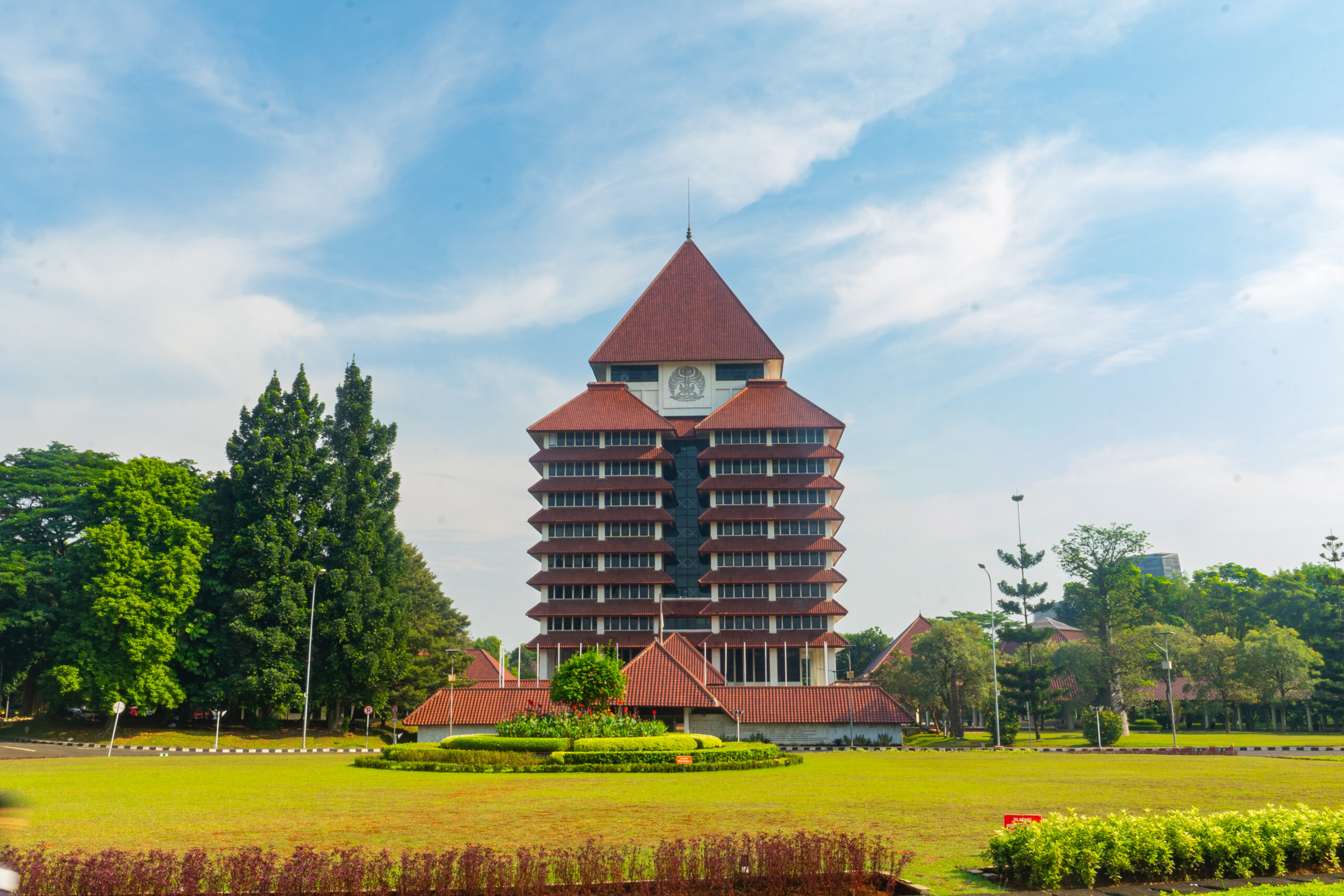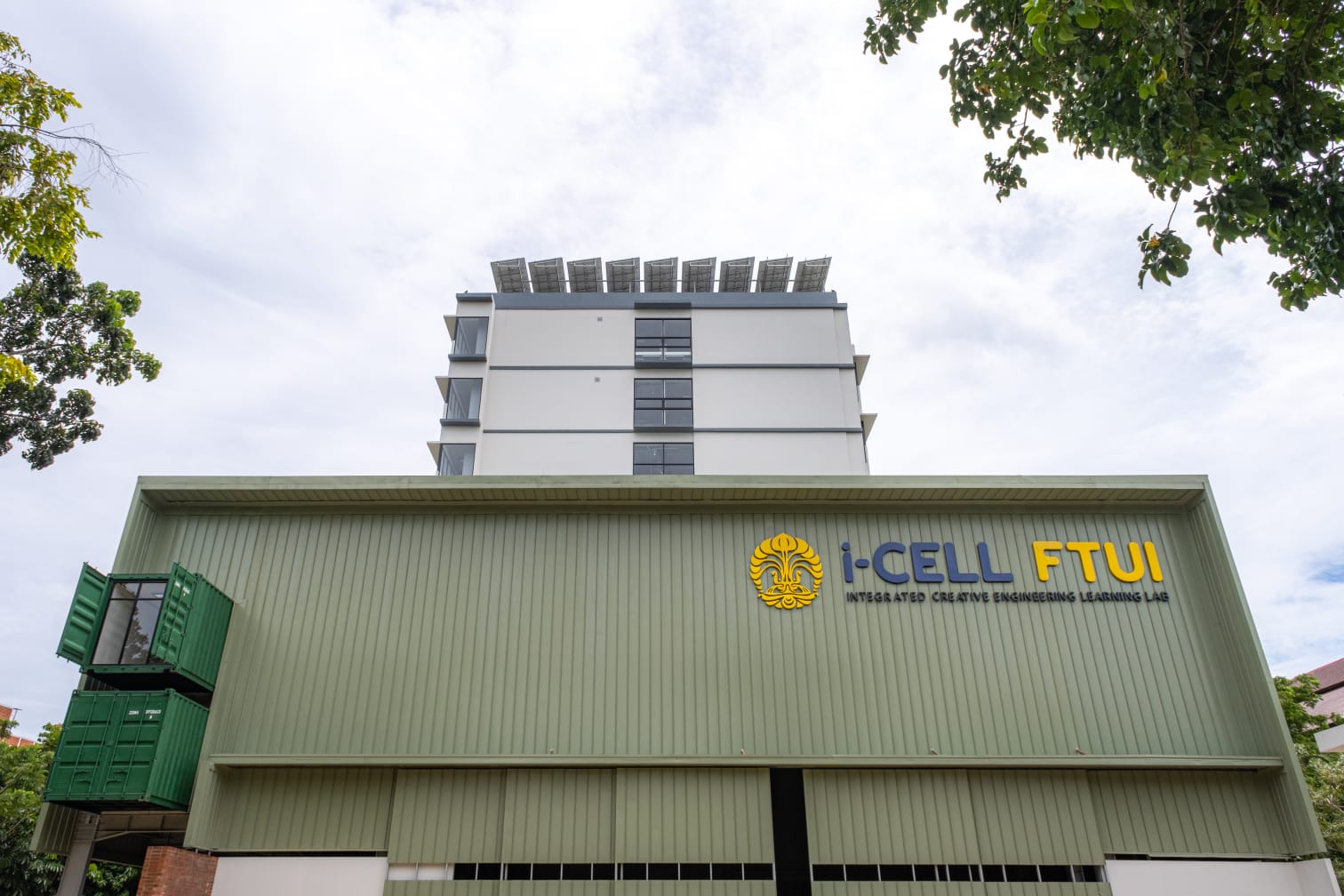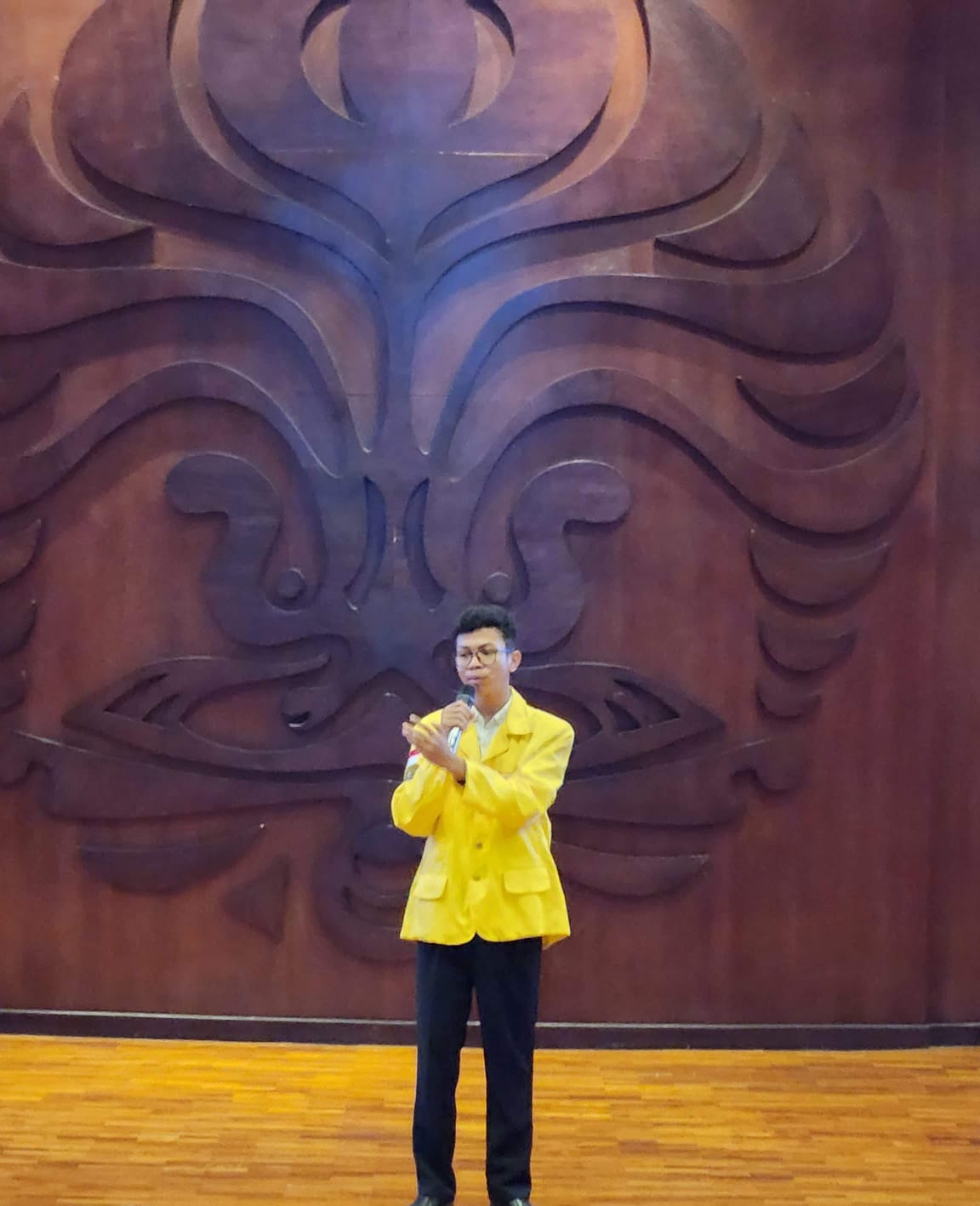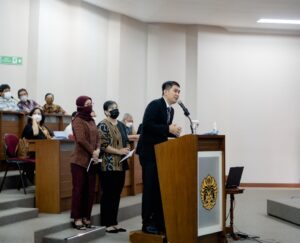
Russia is a country that was negatively framed by the Indonesian media during the repressive-totalitarian New Order regime. However, the winds of political change that occurred in Russia and Eastern Europe in 1985-1991 with its glasnost and perestroika policies made the framing of news about Russia in Indonesia change. The massive and intensive coverage in a media outlet that is one of the most respected and nationally circulated dailies in Indonesia shows that there is a hidden message to be conveyed behind the coverage of the issue.
“When viewed in the context of the repressive and totalitarian New Order government, the change in the framing of the news can be interpreted as an effort to fight in secret. In addition, changes in framing can also be seen as a way for the media to strategize and attempt during the New Order era to criticize without fear of being suppressed by the government. This research will examine the media’s use of glasnost and perestroika as an entry point for discussing political changes in Indonesia during the New Order era, namely in 1986-1991,” said Dr. Mochamad Aviandy, S. Hum., M. Hum.
The lecturer of the Russian Literature Study Program conveyed this in his dissertation entitled “Framing of Glasnost and Perestroika News on KOMPAS Daily as a Criticism of the New Order”. Aviandy found that there was an attempt to negotiate by the media used in his research with the New Order government, through editorial articles in the form of glasnost and perestroika issues that were being discussed at that time.
In his dissertation research, Aviandy collected 425 articles and 54 editorials related to glasnost and perestroika during 1986-1991. The results of his research show that media framing strategies need to be used comprehensively in dealing with authoritarian government regimes.
Thus, criticism can be conveyed by the media without having to experience a blackout. Negotiation with power needs to be used to maintain the role of the media as one of the main pillars of democracy in criticizing power.
The novelty and contribution of his research by using the theory and method of media framing on editorials in the era of the New Order totalitarian regime that focuses on how a national media utilizes the international news issue space as a place to criticize the political regime, has never been done. She hopes that her research will add to the body of knowledge on text framing analysis of how the Indonesian media attempted to critique the repressive and authoritarian New Order regime.
“It is also necessary to pay attention to how the national daily is still trusted by the Indonesian government, in the sense that it continues to be published and circulated nationally and journalists and their leaders are not ensnared by the law, although after analysis it was found that there were attempts to criticize implicitly,” said Aviandi in the doctoral promotion session which was held offline at the Auditorium of Building 1, Faculty of Humanities (FH), Universitas Indonesia (UI), Depok Campus.
At the end of the presentation, Aviandy concluded that the media in Indonesia, which was being repressed at the time, could take advantage of the spaces and loopholes that existed to still try to convey criticism of the government and also bring awareness to readers and the public of international issues and the spirit of the times. The media’s awareness, critique, and attempts to speak out amidst limitations will certainly continue, even when the issues of glasnost and perestroika are no longer echoed.
Aviandy conducted an offline doctoral promotion session on Wednesday (13/07) and was declared to have passed with the title “Cumlaude“. His success in obtaining a doctorate adds to the number of doctors at FH UI, which currently totals 392. He is the fifth doctor in the Literature Study Program of FIB UI to graduate in 2022. In his doctoral promotion session, the professors of FH UI, Prof. Dr. Bambang Wibawarta, M.A., Prof. Melani Budianta, M.A, Ph.D., Prof. Dr. Irmawati Marwoto, S.S., M.S., Prof. Dr. R. Cecep Eka Permana, S. S., and Prof. Dr. Lilawati Kurnia, S. S., M. A. were also present offline, as well as leaders of FH UI including Dr. Untung Yuwono (Vice Dean for Education, Research, and Student Affairs of FH for the period 2022-2026), Dr. Taufik Asmiyanto, M.Si (Vice Dean for Resources, Ventures, and General Administration of FH UI for the period 2022-2026), Dr. Adrianus Laurens Gerung Waworuntu, S.S., M.A. (Dean of FH UI for the period 2017-2021), and other staff.
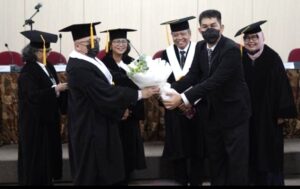
The doctoral promotion session held by the Postgraduate Study Program of Literature at FIB UI was led by Prof. Dr. Agus Aris Munandar, M. Hum. Acting as the Promoter in this is Prof. Manneke Budiman, Ph.D.; and Dr. Dhita Hapsarani as Co-promoter. The examiner in the trial was Dr. Turita Indah Setyani (Chairman of Examiners), Dr. Yosef Marcis Djakababa (Examiner Member) from Pelita Harapan University, Dr. Ade Armando, M.S (Examiner Member) from the Faculty of Social and Political Sciences UI, Shuri Mariasih Gietty, Ph. D. (Examiner Member) from FH UI, and Mina Elfira, Ph. D. (Examiner Member) from FH UI.

